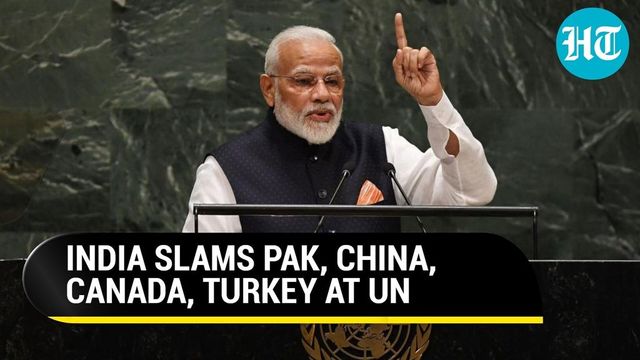 3Photo1Video© hindustantimes.com
3Photo1Video© hindustantimes.comIndia criticises 'Uniting for Consensus' Model at UN for opposing reforms to Security Council
India has criticised a model for the UN Security Council presented by the Uniting for Consensus group that includes Pakistan, saying it stands against the idea supported by a majority of member states to expand permanent and non-permanent seats and underscored that the world of the 21st century “desperately needs a UN 2.0”.
The UfC comprises Argentina, Canada, Colombia, Costa Rica, Italy, Malta, Mexico, Pakistan, the Republic of Korea, San Marino, Spain, and Turkiye. China, a permanent member, and Indonesia are participating in the group as Observers. The UfC group is opposed to the creation of new permanent members in the Security Council. The UfC model entails a Security Council with 26 seats, with an increase only in the non-permanent, elected members. It proposes creating 9 new long-term seats with immediate re-election possibilities.
“Threats to international peace and security have become more complex, unpredictable and undefined. The world of the twenty-first century desperately needs a UN 2.0 that is credible, representative, reflecting the needs and aspirations of the member states and capable of maintaining peace and security,” India’s Permanent Representative to the UN Ambassador Ruchira Kamboj said in response to the UfC model presented by Italy at the Intergovernmental Negotiations (IGN) meeting on UNSC reforms on Monday.